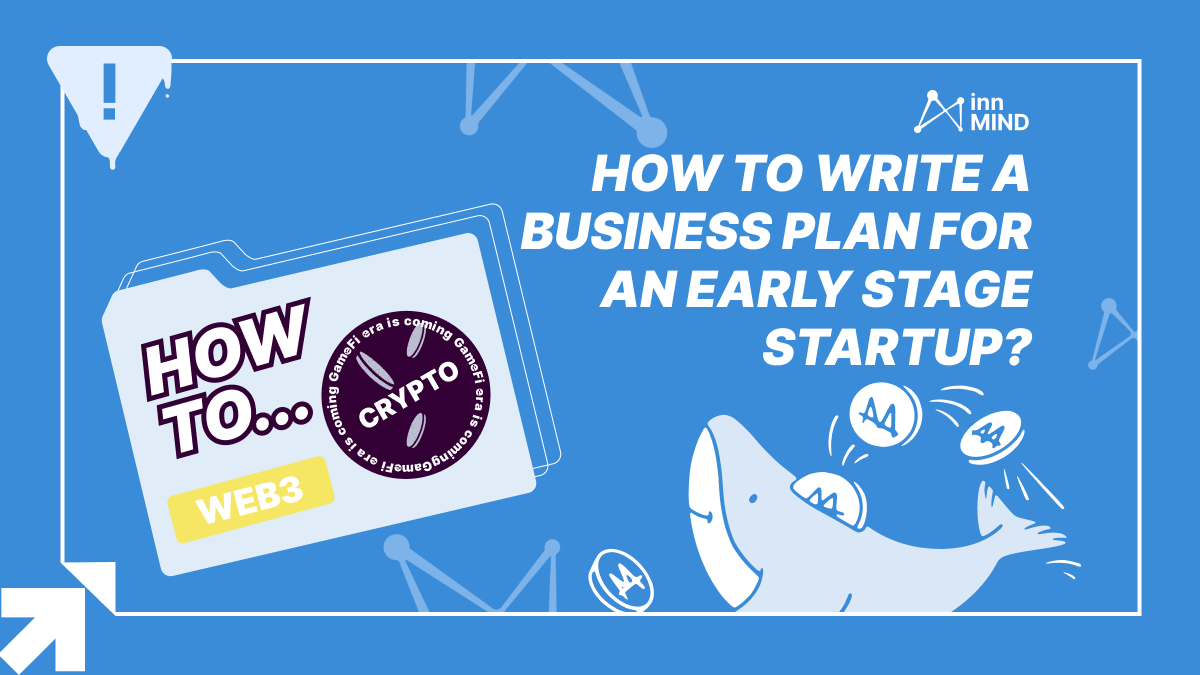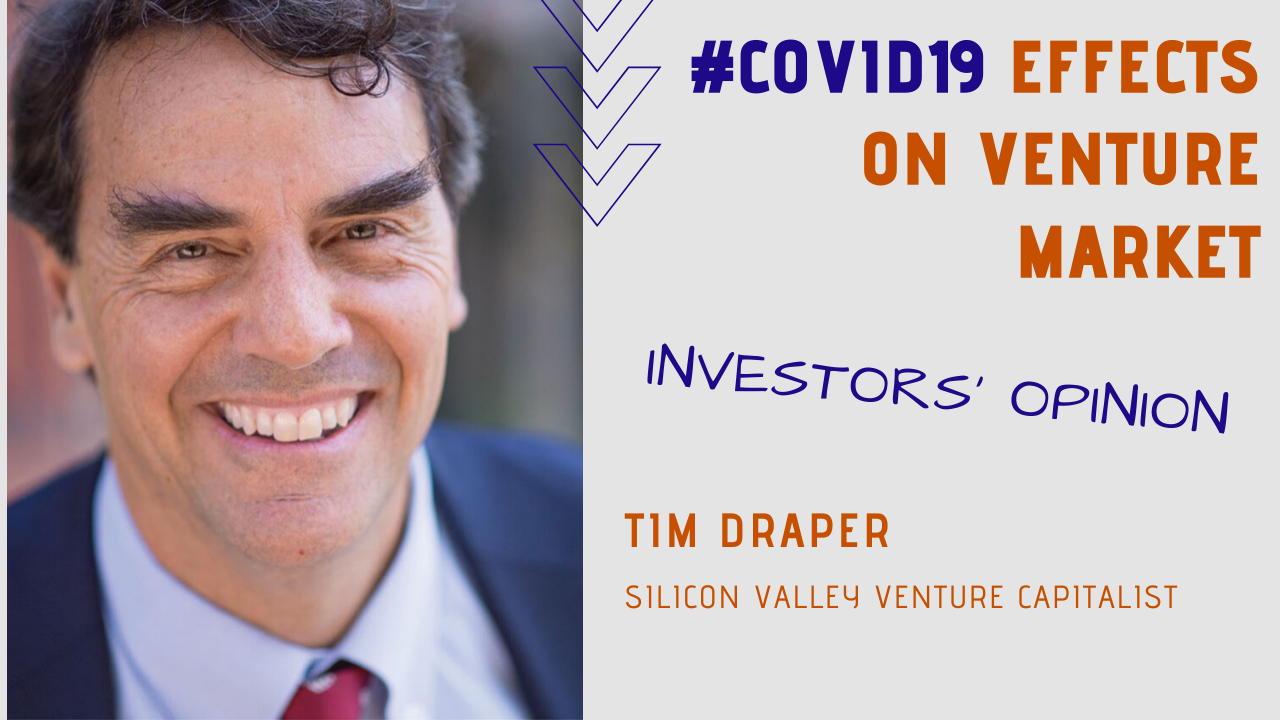How to Write a Business Plan for an Early Stage Startup?
A Definitive mini-guide on How to Write a Business Plan for an early stage startup with a set of advice and useful resources which will help startup founders to write a great business plan without any headache.

Writing a business plan is definitely one of the main pain points for many startup founders, especially at the early stage. And this is not surprising: it is quite a challenge to establish a solid business plan, when there is very approximate understanding of marketing strategy, no real prove of the business model and no numbers or statistics to make financial forecasts (as it is usually demanded for 3-5 years). That's a headache, no one will doubt!
Every month InnMind team receives tons of requests from startup founders to help them in writing a business plan. They ask us advice about what template it is better to use, what items should be underlined as priority, which chapters must be included and which may be omitted in the business plan for a startup. And in most cases we say: hey guys, listen, there are tons of useful materials on this issue, great advices, books and articles on how to write business plan, just take your time to do some Internet search and find the most relevant and useful of them!
But... the number of questions and requests never decreases. For those who don’t want to waste time for searching for relevant information through Internet we prepared this definitive guide on how to write a business plan for a startup.
Should I Write a Detailed And Solid Business Plan?
I would rather say - NO, you shouldn’t. Why should you mark tons of pages, pretending to have a business plan for a startup which is similar to the one for multinational corporations? It’s ridiculous and obviously will be a waste of your time.
Business plan for a startup doesn’t have to be ideal, solid and comprehensive document. It has to explain clearly your idea, value proposition and business model - that’s it. In other words, business plan for startup includes your vision of your business goals and opportunities, combining risks & challenges, and the ways how to achieve the former and overcome the later.
Here is a great insight from serial entrepreneur and investor Patrick Hull, who answered this question in his post 5 Tips for a Great Business Plan in Forbes:
I once wrote an entire business plan with a business partner on paper towels. We recognized an opportunity, but had to write it down and test the idea to make sure it would work (we didn’t have any paper handy, although that didn’t stop us). The plan was just for us, but we still had to see if the vision, the financials, and the strategy were sound. We created that company and it went on to gross millions of dollars a month. In other words, your business plan doesn’t have to be some manicured document in order to make it successful.
What To Start My Business Plan With?
Sit down with your partners and team, have a drink, hold a brainstorming session and answer the following questions:
- What is my business about?
- What value does it bring to the customers? Why would customers buy my product or service?
- Are there competitors in my niche? What are their strong and weak points? Why would I be better?
- What is my potential market size?
- What goals do I want to reach and how?
- What do I need to execute your plan?
After answering these questions to yourself, start simply putting them on paper.
For the beginners it would be also useful to learn some basis. Chris Bowles (@chrisbowlesinc) in his blog made a very good presentation - Business Plan Writing: 4 Lesson Guide To Business Plans - which covers all the basic points of the business plan. What I like here is the creative way in which Chris delivers information: you don't need to read a book on how to write a business plan, it's enough just to view the short presentation where author visualised all the basic aspects of business plan writing.
Are There Any Business Plan Templates or Examples?
Sure, you can find plenty of them just googling. Let me mention some of the most interesting:
Free Business Plan Templates From Entrepreneur
Entrepreneur, in collaboration with with SeamlessDocs, provides some free templates. Regarding business planning they have Business Plan non disclosure agreement, Business Plan Overview Template, Executive Summary Template and Marketing Plan Overview Template. You may download them free of charge directly by clicking the link above.
SCORE Business Plan Template for a Startup Business
SCORE is a nonprofit association that helps entrepreneurs and small business owners. They have a well-structured template of a business plan for a startup, so you can download it for free to draft your own plan.
Samples of Business Plan Executive Summaries on Businessplans.org
Here you can find free samples of executive summaries of the best business plans, which were presented at MOOT CORP® Competition, in which MBAs from the best business schools in the world present their business plans to panels of investors. They have a really huge list of business plans samples for variety of industries and cases, you just select the samples from your specific topic.
Mint.com: Business Plan In Elevator Pitch
As it was already mentioned before, you don’t need to have a solid multiple-page business plan for an early stage startup. Of course, it is not very convenient to write it on paper towels, but you can simply make it in the format of a presentation. As an example, I really recommend you looking at the Mint’s elevator pitch presentation, which actually has their business plan explained in 16 short slides. Why not make the same for your startup?
Business Plans Samples From bplans.com
Actually, Bplans.com provides software for business planning, which PRO edition starts from $19,95 per month. But on their website you can find some set of pretty good samples of business plans for different industries. Just dig through the website and ignore annoying popups ;)
You also can use the help of business plan writers who can assist in crafting initial business plans, refining existing ones, and seamlessly integrating financial strategies with other tools and platforms for comprehensive business success.
We can continue this list with tons of resources, but I think that it makes no sense: if you’re not satisfied with those which are provided above - simply ask your search engine for other variants. But keep in mind: templates, samples and software can help you with structuring and formulating information, nothing more. Your real business plan should be the product of your own research and understanding of your future business!
Where to Start Creating Business Plan?
Most of the advisors will tell you that before answering your business plan questions, you need to investigate your market, customers, competitors, etc. I would say the following: it’s evident that before even thinking about writing a business plan while developing your startup idea, you should already think about value, customers, market and opportunities, so I presume you already have some understanding of the answers to all these questions. And I advise you to note down answers to these questions before the detailed analysis.
Support Your Business Plan With Marketing Research
And after having the first draft on paper, start the real detailed investigations. Surf the Internet to learn more about your market, speak directly with potential customers to understand their needs better, learn your competitors and their weaknesses, calculate precisely your expenses for execution and potential incomes for the first year.
And then, after doing all this homework, compare your first (partly intuitive) answers with the results of your investigations.
Do you have an impressive difference between the first and the second time answers? That’s normal, believe me ;)
For many newbies-entrepreneurs this is a rubicon where they give up and start seeking for a job (or a new business idea).
But if you are not one of them, if you are not scared of the revenues decrease (they were definitely overestimated in the first version), by competition (oh, you didn’t realize how tight it may be), by the volume of work to be done (yeah, billions will not appear in few months of work 8 hours per day), if you still see the great opportunities behind the details and numbers and want to reach them whatever it takes - congrats, you are probably one of those lucky entrepreneurial spirits who can handle the founder’s challenges.
Then you should update your business plan with new details after research, determine the first steps to be done for execution and come on - just do it! And I’ll cross all my fingers for your success.
Subscribe to InnMind
Subscribe to InnMind using the links below to stay up to date with upcoming events, releases, and news from the Web3/Cryptocurrency/NFT/Metaverse world of startups and investment funds:
Website | Twitter | Telegram | VC Pitching Sessions | Youtube | LinkedIn
Read Also:








